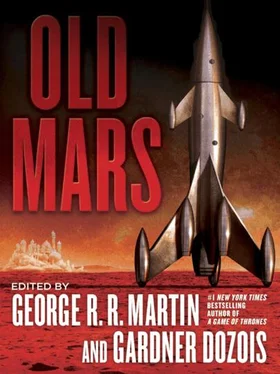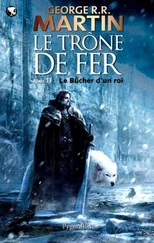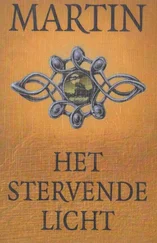They were the most obvious feature he had bestowed on their child. Her warm café au lait skin and curling brown hair were all Kane. His love for her manifested as a squeezing pressure in Noel’s chest. The back door closed behind her, and it was suddenly very quiet in the kitchen.
He turned to his husband and smiled. “Hey, we have the house to ourselves,” Noel said, giving a suggestive edge to the words. Kane’s grim expression didn’t lighten. In fact, it became even more pronounced. “What? What have I done now?” Noel asked.
“Let’s talk in our room.”
Noel shortened his stride so as not to outpace his smaller spouse. Their room was a perfect mix of both their personalities. Dead-tree books on a shelf, a few of Kane’s abstract paintings that they had paid to ship from Earth. Kane had intended to paint once they got settled, but, like so many other plans, that had never materialized. Noel’s battle armor stood in a corner like a warrior sculpture from some alien civilization.
“Okay, what’s wrong?” Noel asked.
“Dad’s enrolled Tilda at Lowell University in the agronomy department.”
“Well, I hope he can get his money back,” Noel said. “She’s going to Cambridge, and she leaves in three weeks.”
Kane looked away, then walked to the dresser and began rearranging items. “I canceled her booking to Earth, and called admissions.”
“WHAT?” It was a tone and timbre Noel usually reserved for insubordinate recruits.
“She’s the heir after me.”
Noel forced himself not to shout. “What happened to we sell it after he’s gone ?” Kane paced to the other side of the room and didn’t answer. “I take it that plan is no longer operative?”
“It’s honest work, maybe noble. We feed Earth,” Kane said defensively. “My great-great-grandfather built this house, broke the soil for the first time in who knows how many thousands of years. It’s right that a McKenzie continue here.”
“Tilda is also a Michaelson, and she has other plans. I had other plans.”
“I thought your plan was to be with me,” Kane said.
“It is, but …” Now it was Noel’s turn to pace. “You didn’t want this life. You said you never wanted to return.”
“Things change.”
“Obviously. But you and your horrible father don’t have the right to make that decision for Tilda.”
“So, now it comes out.”
“Yeah, he’s a bastard, and you know it. You used to say it. Tilda is going to Cambridge if I have to take her there myself.”
“You can’t. We’ll stop you at the port. She’s the daughter of a natural-born Martian, and underage. We can keep her here.”
Noel ran agitated fingers through his hair. “I don’t know who you are anymore. How could you do this to our daughter? To me?”
Kane crossed to him and gripped his shoulders. “Look, let him think he’s had the win. When Tilda turns twenty-one, she can do whatever the hell she wants, but it gives me time to work on the old man … and … and … things can change.”
“First, he doesn’t change. He reminds us daily about how goddamn resolute he is,” Noel said bitterly. “And second, I don’t think you can count on him conveniently dying and saving you having to confront him. Finally, three and a half years will be too late for Tilda. How’s studying agronomy at a shit college on Mars going to help her get into a quality university, especially after she backed out?”
Kane stiffened. “I graduated from Lowell.”
“I didn’t mean—”
“Yeah, you did. You think this is Hicksville.”
“Don’t change the subject. That’s a distraction. You need to face up to what you’re really doing. You’re taking the coward’s way out. Not defying your father, and letting Tilda and me suffer because of your lack of spine!” The moment the words were out, Noel wished he could recall them. Even with Kane’s dark skin, Noel could see the blood rushing into Kane’s face.
“And now I see what the famous SpaceCom officer thinks of me!” He whirled and stormed to the door.
“Kane, wait! I’m sorry, I—”
The heavy metal door whispered shut, but it felt like a slam.
Tilda pushed back the canopy and climbed into her garishly painted ultralight plane. Was it the unremitting red of Mars that made settlers so crazy for color? she wondered. Hers was painted silver, with blue stars and moons and streaks and swirls across the overly long wings and fuselage. She taxied down the runway, past the big crawlers that carried their goods to the spaceport in Lowell City. The long acceleration down the runway, and the extralong wings, caught enough of the thin Martian atmosphere, and she was in the air. In the distance, she saw Ali’s black plane with silver lightning bolts also climbing into the ruddy sky.
She banked to come in next to him, and they flew wingtip to wingtip as they passed over the Martian city. She wondered what her dream Martians would make of it now. The jewel-tone towers were still the same, but now the avenues were washed with red dust and filled with the whine and moan of the incessant Martian wind instead of with songs.
The shadow of the ultralights’ wings swept across the red sand and rock of the planet, and played tag with the swirling whirlwinds dancing across the craters and plateaus. The fragile light of the distant sun sparkled on the domes covering the farm fields of the settlers.
Through the front windshield, she watched the looming mass of Mons Olympus, the solar system’s largest volcano, draw closer. The peak scraped at the red sky of Mars, and a few tattered clouds coiled about the shoulders of the mountain as if the massif were trying to wrap itself in a thin shawl.
Ali broke the silence. “I’m going to miss this.”
“Have you been to Earth?” Tilda asked.
“No.”
“You’ll like it.”
“My mom’s afraid that I won’t want to come back.”
“What did you say to her?”
“I promised her I would.” There was a hesitation. “But I lied. I don’t know how I’m going to feel after college and med school, maybe a residency spent down the gravity well.”
“Maybe it would have been better to be honest?” Tilda suggested.
“She cries all the time. Just think what she’d do if I’d said that .”
They crossed over a canal, and on sudden impulse, Tilda said, “Let’s land.”
“Why?”
“I want to drop a rock into a canal. I haven’t done that.”
“You hoping something will crawl out?” Ali teased.
“No, of course not. I just … look, just go with it, okay?”
“Okay.”
They found a level area not far from the sharp cut of the canal and landed. In Mars’s low gravity they were able to take long, floating strides that quickly carried them to the edge of the canal. It was obvious that it wasn’t natural. The edges were clean, as if cut by a laser, and the walls were impossibly straight. Tilda knew that early explorers had lowered probes into the canals but nothing had been found. Just sheer walls of fused glass. Why had the Martians made them? What purpose had they served?
Initially, the fear that something lived in those deep cuts had discouraged colonization, but years passed and nothing ever emerged from the canals, and necessity replaced fear. The home world, gripped in climate change and lacking enough cropland for her teeming billions, needed a new breadbasket. So the doomsayers had been overridden, and the settlers had arrived.
Tilda knelt on the edge of the canal and picked up a rock. Dropped it over the edge. Waited for what seemed like endless heartbeats. Predictably, nothing happened.
“It’s so strange they left no written records,” Ali said.
“I think O’Neill is right, and music is how they passed information,” Tilda answered, referring to a theory formulated by Mars’s most famous xenoarchaeologist.
Читать дальше












